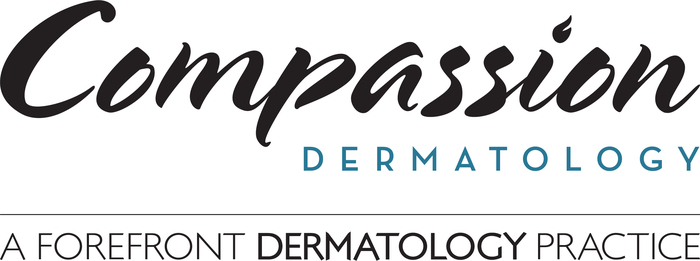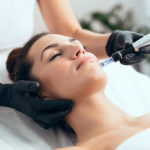
Allergic Contact Dermatitis
The warm days of summer are typically accompanied by an increased incidence of allergic contact dermatitis. If you recognize your skin problem in the following, contact Compassion Dermatology for a consultation. We will be glad to help you in our Southlake Dermatology practice.
Signs and symptoms
Allergic contact dermatitis is characterized by itchy papules, which are small raised pimples or swelling, and redness. The presence of itchy plaques may indicate a chronic form of the condition.
The condition typically develops within a few days in areas that were exposed directly to the allergen. However, some allergens that are poorly absorbed may not cause a reaction for as long as a week after exposure.
Diagnosis
In addition to visual examination, diagnosis may include a culture, patch testing, testing for nickel, skin biopsy or other tests. If you have an itchy rash, contact our Southlake Dermatology practice to schedule a consultation.
Management
The treatment is first to identify the cause and to remove the identified allergen. Topical corticosteroids are a common treatment for allergic contact dermatitis. Severe allergic contact dermatitis, such as from poison ivy, often needs to be treated over a 2-week course of medication.
Remember, the identification and removal of any potential causal agents are required. Without removal of the cause, the patient remains at risk for recurrence, and at increased risk for chronic dermatitis. In addition, those with chronic dermatitis may develop an allergy to topical corticosteroids. A patch test can determine if a person is allergic to topical corticosteroids. Contact our Southlake Dermatology practice today to put an end to your allergic contact dermatitis.
Contact Dermatitis Vs. Allergic Contact Dermatitis
Contact dermatitis is often confused with allergic contact dermatitis. Contact dermatitis is inflammation of the skin due to direct damage from chemicals. As previously stated, allergic contact dermatitis is an allergic reaction, and not direct skin damage from chemicals. If you are unsure of the identity and cause of your skin issue, our Southlake Dermatology staff can provide the healing you need.
A detailed history is essential in evaluating a patient with allergic contact dermatitis prior to patch testing. The history helps to identify potential causes of allergic contact dermatitis, and helps to determine the potential allergens that should be included in patch testing.
The Causes
Allergic contact dermatitis results from skin contact with an allergen to which the patient has a specific sensitivity. The resulting allergic reaction causes inflammation of the skin manifested by redness, swelling and the small pimples.
Approximately 25 chemicals are commonly responsible for as many as half of all cases of allergic contact dermatitis. Nickel, preservatives, dyes, and fragrances are especially common allergens. Compassion Dermatology can provide the help you need to resolve this uncomfortable condition in our Southlake Dermatology clinic.
- Poison oak and ivy are an example of acute allergic contact dermatitis in the U.S. Allergic contact dermatitis from these plants is characterized by acute dermatitis that develop where oils from the plant has been in direct contact with the skin. Contact our Southlake Dermatology to schedule treatment for your poison oak or ivy.
- Nickel is a leading cause of allergic contact dermatitis, and the incidence is on the rise in the U.S. Europe has enacted regulations resulting in a reduction of the allergen exposure in women. The reaction to nickel is typically localized to the areas where nickel containing objects are worn, or are in contact with the skin. Nickel in the diet of allergic individuals may result in vesicles on the sides of the fingers.
- Rubber Gloves-Any individual who wears rubber gloves and experiences dermatitis is is considered allergic to one or more chemicals contained in them, unless a patch test indicates otherwise.
- Hair Dye-The chemical p-Phenylenediamine (PPD) is a common component in permanent hair dye products. Exposure may cause acute dermatitis with severe swelling of the face.
- Textiles-Persons allergic to dyes and clothing containing chemicals added to textiles often develop dermatitis on the trunk. Individuals allergic to chemical containing clothing can find relief by wearing 100% cotton. In addition, new clothing is more likely to induce contact dermatitis. Allergens may diminish in concentration with repeated washing.
- Preservatives-Preservatives are added to cosmetics, moisturizers, shampoos, sunscreens and topical medications. They are a common source of allergic contact dermatitis. Formaldehyde, Quaternium-15, isothiazolinones and methylisothiazolinone are frequent causes to watch out for. We can assist you in identifying the causes of your skin condition. Contact Southlake Dermatology today.
- Fragrances-Fragrances are found in perfumes, colognes, shampoos, aftershaves, lotion, deodorants, soaps, and other products. If you are allergic to fragrances, choose fragrance-free products. Deodorants are a common cause of allergic contact dermatitis caused by fragrances. This is because they occlude skin that is often abraded by shaving in women.
- Benzocaine-Persons who are allergic to benzocaine can safely use or be injected with lidocaine (Xylocaine), which does not cross-react with benzocaine. The patch test typically includes testing for Benzocaine allergy.
- Photo allergy-Photo-allergic contact dermatitis not a common reaction. The allergy may be due to ultraviolet (UV) light, or an allergic reaction when a chemical is present on the skin, and combined with sufficient ultraviolet light.
Patient Education
The best prognosis is related to avoiding exposure to known allergens. This includes reading the label for the known allergens identified. A thorough examination and testing will reveal the chemicals and plants you need to avoid. Compassion Dermatology can help you with your skin issues. Contact our Southlake Dermatology office today.



